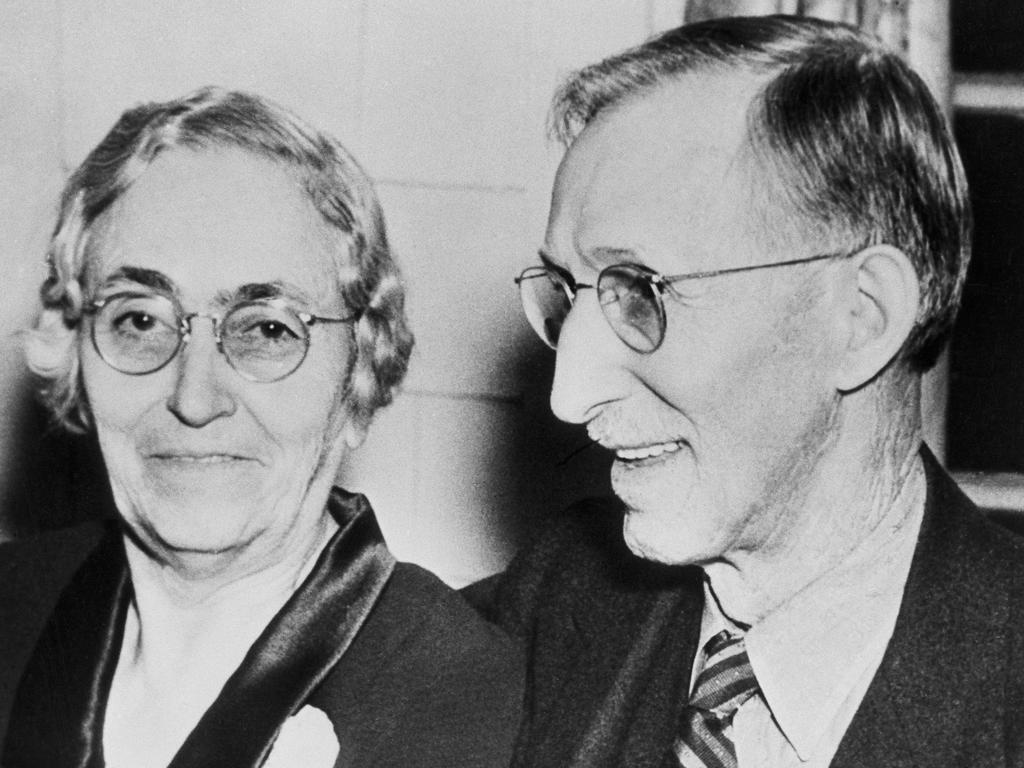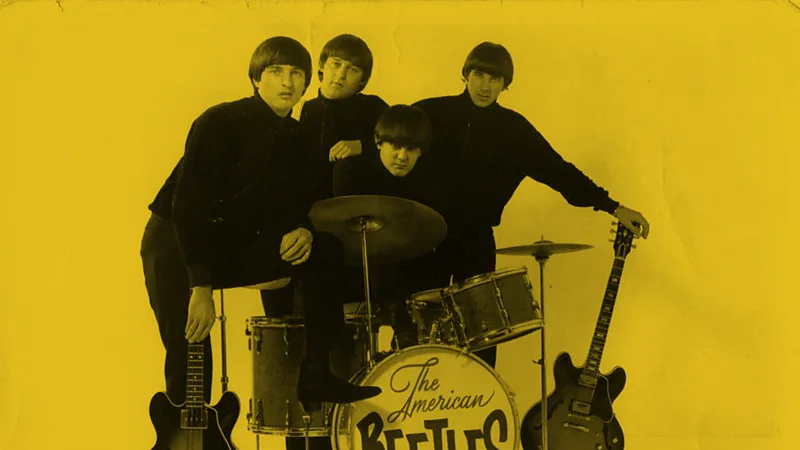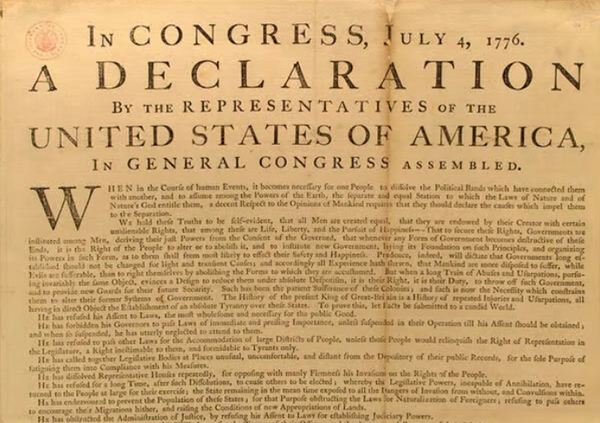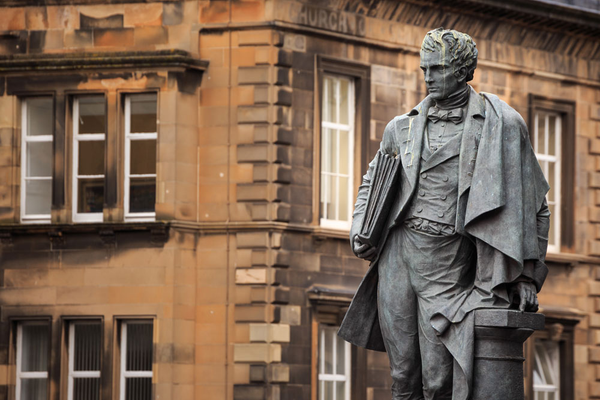Walt Disney blamed himself for his mother's death

From Vintage News: "Snow White and the Seven Dwarfs marked a turning point for Walt Disney. It was his first full-length cel-animated feature film, and it was astonishingly successful. The movie took in an unheard-of $1.5 million. Flush with success, Walt and his brother Roy bought their parents a house in North Hollywood, and Elias and Flora moved from Oregon. When Flora complained about a weird smell coming out of the furnace, Walt had repairmen come by to fix it, but they were apparently unsuccessful. Their housekeeper came in the next morning and found his mother and father unconscious and pulled them out on the front lawn. His father survived but Flora did not."
How South America got conned into a concert tour by the fake Beatles

From the BBC: "Early in 1964, as Beatlemania swept the world, newspaper headlines announced that The Beatles would be travelling to South America later that year. Millions awaited their arrival with bated breath – and in July, when four young moptops descended into Buenos Aires Airport, it seemed that teenage dreams were about to come true. The Beatles were actually nowhere near Argentina at the time. The British group were back home in London, on a rare rest stop between concerts and recording. But without their knowledge, four young guys from Florida named Tom, Vic, Bill and Dave had taken their place. Previously a bar band called The Ardells, the quartet were now 'The American Beetles', or sometimes just 'The Beetles' for short."
When everyone thought the woman with the world's highest IQ was wrong

From Priceonomics: "Marilyn Vos Savant is listed in the Guinness Book of World Records for having the world’s highest IQ, and after Parade Magazine wrote a profile on her, readers responded with so many letters that the publication offered her a full-time job as a columnist, answering academic questions and solving logical puzzles. It was in the body of one of these columns that vos Savant ignited one of the most heated statistical battles of the 21st century. When vos Savant responded to an inquiry about a probability puzzle known as the Monty Hall Problem, she got over 10,000 letters, many from noted scholars and Ph.Ds, informing her that she was a hare-brained idiot. But she was right."
Editor's note: If you like this newsletter, please share it with someone else. And if you really like it, perhaps you could subscribe, or contribute something via my Patreon. Thanks for being a reader!
The dark and somewhat violent history behind the Michelin Man

From Car Keys: "Listed as one of the most iconic advertising mascots of all time by Business Insider, the Michelin Man’s adorably obese, benevolent appearance has charmed generations and helped establish Michelin as a household brand. However, the character’s story is actually a lot deeper and darker than it first appears. For a start, the Michelin Man’s name is actually Bibendum, named for the Latin slogan ‘Nunc est bibendum’ which was taken from a collection of poems by Roman poet Horace, and which means “Now is the time to drink”. And he used to be a stone cold killer who slaughtered his rivals, smoked heavily and attracted violence and controversy wherever he went."
The decimal point is a hundred and fifty years older than historians thought

From Nature: "The decimal point was invented around 150 years earlier than previously thought, according to an analysis of astronomical tables compiled by the Italian merchant and mathematician Giovanni Bianchini in the 1440s. Historians say that this discovery rewrites the origins of one of the most fundamental mathematical conventions, and suggests that Bianchini — whose economic training contrasted starkly with those of his astronomer peers — might have played a more notable part in the history of maths than previously realized. The results are published in Historia Mathematica. Previously, its earliest appearance was said to be in an astronomical table written by Christopher Clavius in 1593."
Brains for breakfast used to be a popular American delicacy

From Atlas Obscura: "Traditionally, many cultures have regarded animal brains as a delicacy, and not just because of an ethos of zero waste. Brain’s texture and flavor—rich, fatty, and delicate—are unique, and as cuts of meat go, this one is relatively hard to come by. Before the mid-20th century, Americans treated the brain like any other cut of meat, especially in areas where livestock animals were raised. At least one company, Rose, still markets canned brains soaked in milk (a typical initial step when preparing brains to remove the blood). Scrambled eggs and brains was once a classic American breakfast pairing, appearing in Fannie Farmer’s influential 1896 cookbook."
94-year-old Mary from Norfolk recalls her time as a Land Girl
It is so important to record the memories of the generation that came before, that sacrificed so much for us.
— Tom Whipple (@whippletom) February 20, 2024
Such as the glorious Mary, 94, from Norfolk. "I was an absolute trollop when I was a Land Girl." pic.twitter.com/MDp6zRZOho
Acknowledgements: I find a lot of these links myself, but I also get some from other newsletters that I rely on as "serendipty engines," such as The Morning News from Rosecrans Baldwin and Andrew Womack, Jodi Ettenberg's Curious About Everything, Dan Lewis's Now I Know, Robert Cottrell and Caroline Crampton's The Browser, Clive Thompson's Linkfest, Noah Brier and Colin Nagy's Why Is This Interesting, Maria Popova's The Marginalian, Sheehan Quirke AKA The Cultural Tutor, the Smithsonian magazine, and JSTOR Daily. If you come across something interesting that you think should be included here, please feel free to email me.



